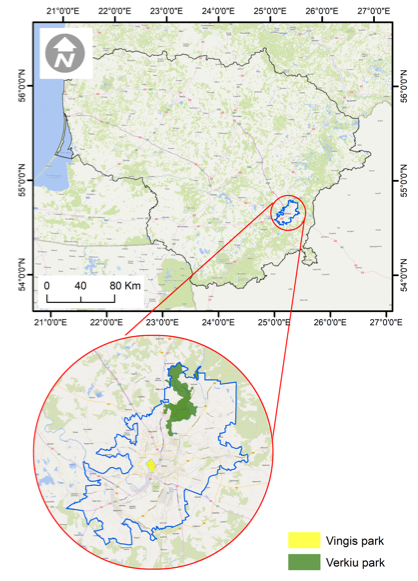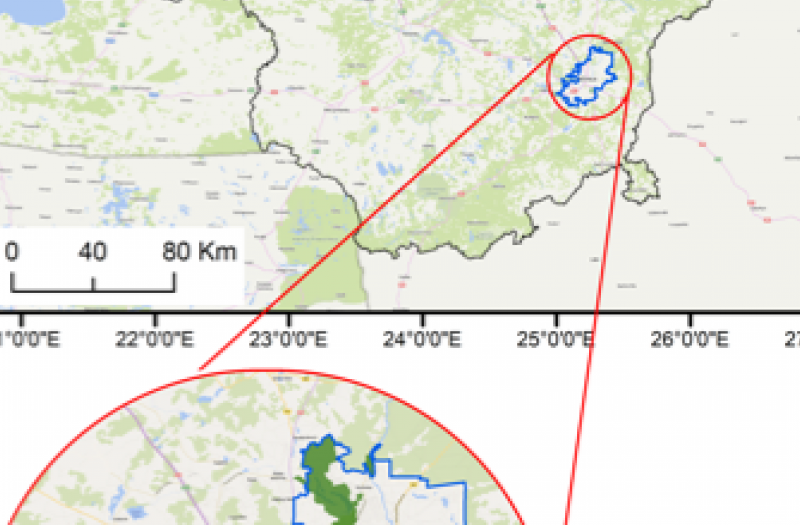Vingis and Verkiu parks in Vilnius, Lithuania (URBANGAIA project)

Vilnius, the capital of Lithuania (humid continental climate, Koppen Dfb) has approximately 500.000 inhabitants and is listed in the UNESCO world heritage (Old town). Despite the increasing urban sprawl, especially in the post-socialist period, large parts of the city are covered by green areas, such as urban parks, private gardens (e,g. Zverynas) and protected areas (e.g. Verkiu park), which provide a wide range of services to city inhabitants. The existence and use of green areas, makes Vilnius a living laboratory for testing the importance of green infrastructure and ecosystem services in urban areas.
The aim of the project is to develop realistic indicators to evaluate, manage and develop performant Green and Blue infrastructure (GBIs) in cities and intensively managed landscapes. UrbanGaia explicitly focusses on analysis of ecological and socio-economic features of the many existing GBIs within a place-based and socio-ecological research framework. The project consists of three main approaches which converge in a transdisciplinary analysis of GBI performance: ecological science, political economic analysis and stakeholder co-creation.
For the case study analyses the following steps will be implemented:
- Initial stakeholder analysis of several phases: interviews to identify the main stakeholders for the two parks (with the highest interest and influence); identification of the most important ES for the stakeholders ...
The use of the KPI framework is aimed at transferability of results at a case study level while the data behind the indicators of each case study might differ. The KPI aims to identify the performance and challenges of U-GBI on generic themes such as nature, nature’s benefit to people and good quality of life (IPBES framework).
UrbanGaia is a European-wide BiodivERsA project with case studies in different European cities:
The project is still on-going.
This research was funded through the 2015-2016 BiodivERsA COFUND call for research proposals, with the national funders FCT (Portugal), PT-DLR (Germany), RCL (Lithuania), BelSPO (Belgium) and MINECO (Spain).
BiodivERsA Science-policy/society interfacing: Frederic Lemaître, Frederic.lemaitre@fondationbiodiversite.fr
URBANGAIA Project Coordinator: Prof. Antonio Dinis Fereira, Instituto Politécnico de Coimbra (IPC),...


